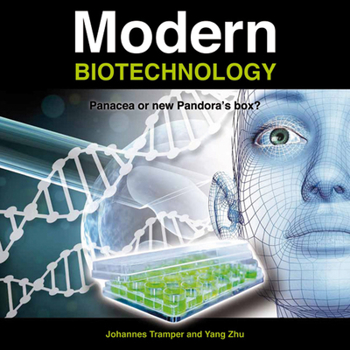Modern Biotechnology: Panacea or New Pandora's Box?
According to Greek mythology Pandora was sent down to earth upon the orders of Zeus. She was given a mysterious box which she was not allowed to open. However, Pandora was very curious and when she arrived on earth she couldn't help taking a peek inside the box. She saw that it was filled with gifts and calamities and to her astonishment they all escaped and spread throughout humanity, with all the dire consequences thereof. Only hope was left at the bottom. Figuratively speaking, Pandora's box today represents a source of much suffering. Is modern biotechnology just such a Pandora's box, as the anti-biotechnology lobby would have us believe? Or can we selectively release the gifts and turn this new Pandora's box into a Panacea? Modern biotechnology makes use of the recombinant DNA technology to genetically modify microorganisms, plants and animals in order to make them more suitable for all kinds of applications, such as cultivating food crops, baking bread, making wine, antibiotics and hormones, xenotransplantation, and gene- and stem cell therapy. The book also particularly addresses the controversial aspects of these applications. Some quotes taken from reviews of the Dutch version of Modern biotechnology: In short, this is a good book if you want to know more about the subject and if you want to develop a well-founded opinion. (Marijke Domis, NVOX) Altogether this has lead to a very accessible book. ...] Furthermore, we would like to mention that the book contains highly amusing illustrations which also contribute to the vast amount of information the book provides. (Ina Eggink, De Telegraaf ) Completely clear and not one word too many, that is the first contribution to the readability. ...] For everyone who wants to gain a comprehensive view of the material this book is practically obligatory literature. (Fred van Hessen, NPT procestechnologie) Johannes (Hans) Tramper was born in 1949 in 's Gravenpolder, the Netherlands. He later studied at the Technical University of Delft, Purdue University in the US and Wageningen University. Since 1987 he has been a professor of Bioprocess Technology at the latter institute. In addition to his main activities in education and research, he also spends a lot of time and effort informing the wider public about modern biotechnology. For more than 20 years he has traversed the Netherlands with his Pandora's box, visiting schools and libraries, attending women's societies, Rotary and Lions clubs, student associations, teacher's gatherings and using many other occasions, to promote discussions on the social and ethical aspects of biotechnology. As a reward for his work in this area, in 2003 Hans Tramper was awarded an honorary membership of the Dutch Biotechnology Association . Since March 2007 he has occupied a place on the ISI list of highly cited authors. Yang Zhu was born in Shanghai in 1955. After the cultural revolution in China, he followed a university course in Bioprocess Technology at East China University of Science and Technology. After obtaining his degree, he stayed on at the university as a lecturer. In 1986, Yang Zhu was sent as a guest researcher by the Chinese Ministry of Education to the Institute for Microbiology at Munster University, Germany. Since 1993 he has worked in the Netherlands, firstly as a scientific researcher at TNO Voeding in Zeist. In 1997 he obtained a PhD in bioprocess technology from the Agricultural University of Wageningen, as it was then called. He is now a senior project manager in the Business Unit Biosciences at TNO Quality of Life in Zeist.
Format:Hardcover
Language:English
ISBN:9086861695
ISBN13:9789086861699
Release Date:November 2010
Publisher:Brill Wageningen Academic
Length:284 Pages
Customer Reviews
0 rating





